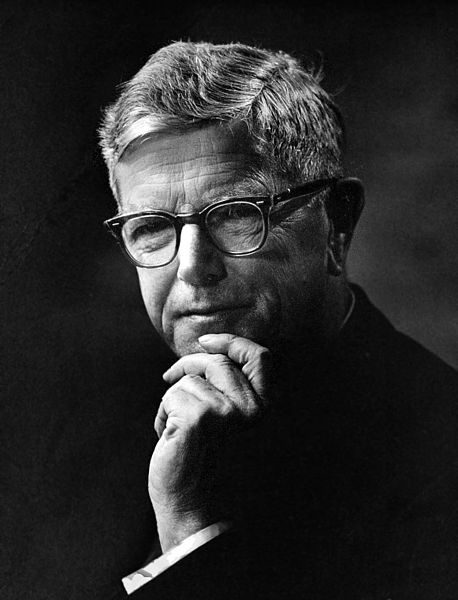Sir Frank Macfarlane Burnet, usually known as Macfarlane or Mac Burnet, was an Australian virologist known for his contributions to immunology. He won a Nobel Prize in 1960 for predicting acquired immune tolerance and he developed the theory of clonal selection.
Macfarlane Burnet
Frank Macfarlane Burnet with wife and daughters in Stockholm in 1960
Coxiella burnetii, the causative agent of Q fever, was named after Burnet.
Burnet working in the laboratory in 1945
Immune tolerance, also known as immunological tolerance or immunotolerance, refers to the immune system's state of unresponsiveness to substances or tissues that would otherwise trigger an immune response. It arises from prior exposure to a specific antigen and contrasts the immune system's conventional role in eliminating foreign antigens. Depending on the site of induction, tolerance is categorized as either central tolerance, occurring in the thymus and bone marrow, or peripheral tolerance, taking place in other tissues and lymph nodes. Although the mechanisms establishing central and peripheral tolerance differ, their outcomes are analogous, ensuring immune system modulation.
Schematic of the reaction norm of tolerance (after). Organisms of genotype 2 are considered more tolerant to the pathogen than organisms of genotype 1.





